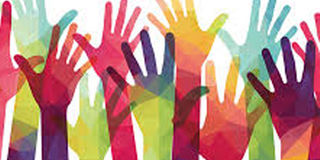Volunteers play vital role in society

What you need to know:
The world emphasises that humanitarian volunteers must be protected, but some of these cries have fallen on deaf ears. Humanitarian workers traditionally enjoyed both international legal protection and de facto immunity from attacks, but this does not seem to be the case today.
As the world commemorates the International Volunteers Day today, we should reflect on the gigantic role of volunteers in all humanitarian platforms. As much as the West was the first to embrace volunteerism during World War I and the creation of the UN Volunteers (UNV) programme in 1970, Africa has been too slow to embrace the spirit of volunteerism. In Uganda, the UNV programme was introduced in 1983, but has since developed from one volunteer to 74, with more than 150 others on international duty in 2008.
Today. Ugandans have realised the importance of volunteerism and the wait has majorly due to lack of recognition for volunteers and their work over the years. The population had failed to understand the concept of volunteerism. Africa being a very poor continent, we cannot think beyond bringing food to the table. All we want is to make money and better our lives. Volunteering for the sake of humanity might be seen as a foolish man’s move. This is a wrong perception.
Volunteering brings with it all the great opportunities that perhaps one would not have got in their money-hunting world. Volunteers are passion-driven and the kindness they exhibit, does not only win them God’s blessings, but also big connections. The perception that volunteering is exploitative is also wrong given that it is done out of love. The UN defines it thus: ‘A volunteer is a person who does unpaid work with paid expenses.’ This clearly shows that volunteers are entitled to small allowances to cover their expenses.
With the emergence of NGOs in the country and the impact of volunteers in mobilising for aid and development, the world has woken up to appreciate the relevance of volunteering. For instance, Uganda Red Cross today boasts of more than 360,000 volunteers serving humanity with dignity and impartiality, responding to the most devastating crises and disasters. The same goes for UN and many other organisations that serve humanity. Most of these organisations’ work force are predominantly volunteers, who reach every corner of the country to help the vulnerable. Without Volunteers, humanitarian work would be hard to undertake.This year’s theme is ‘Volunteers act first - here-everywhere’ recognises the contribution of volunteers as first responders in times of crisis. Uganda Red Cross volunteers are everywhere where they are needed most.
Humanitarian volunteers, however, continue to face big challenges. There are still hostile societies that have not only failed to appreciate the role of volunteers, but have also attacked and killed them. We have seen cases where Red Cross volunteers and UN peace-keepers have been abducted, tortured or killed by hostile communities. Recently, six Red Cross volunteers were killed in Central African Republic; in October, five were killed in an explosion in Mogadishu.
The world emphasises that humanitarian volunteers must be protected, but some of these cries have fallen on deaf ears. Humanitarian workers traditionally enjoyed both international legal protection and de facto immunity from attacks, but this does not seem to be the case today.
Aggrey Nyondwa Kikobera,
[email protected]




